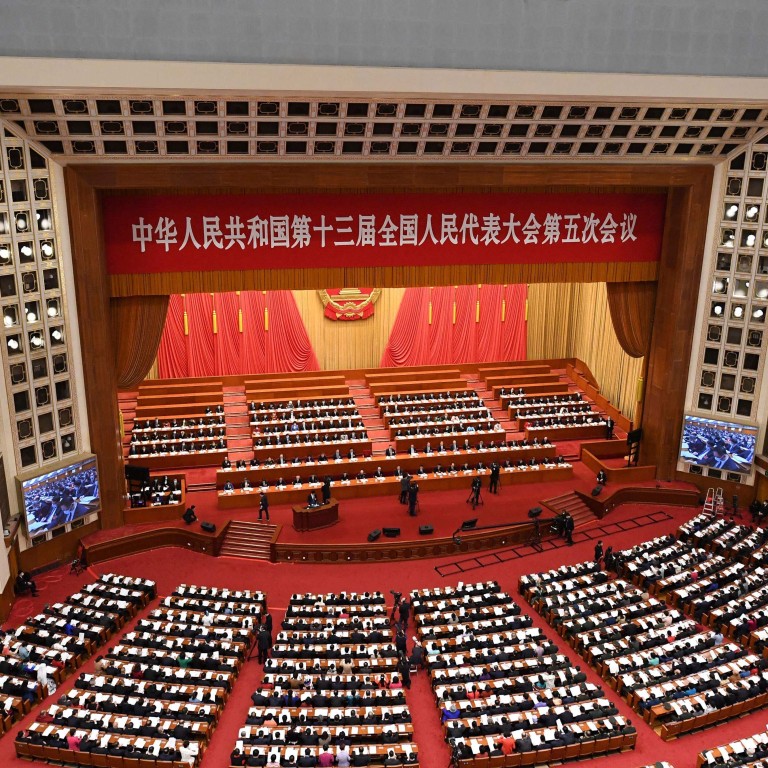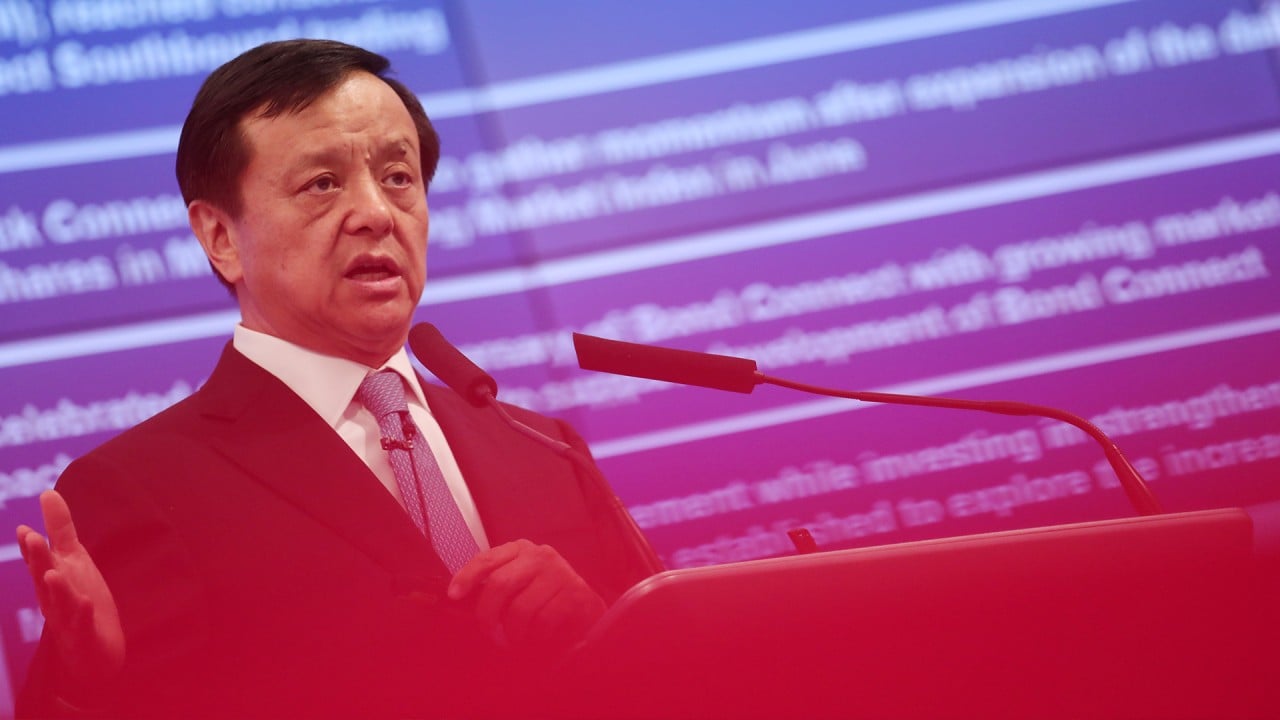
‘Two sessions’ 2022: Hong Kong can offer a hub for trading Chinese offshore bonds to organise market’s ‘pervasive’ chaos, Charles Li says
- The ex-HKEX chief proposes to build an innovative bond market in Hong Kong that can address concerns of offshore investors
- An over-the-counter (OTC) market can ensure the transparency and timeliness of disclosures by issuers, Charles Li said
Hong Kong can offer a hub for offshore Chinese bonds, helping to establish a market place for transacting the debt issued by the nation’s corporate borrowers, the city’s former stock exchange chief said in his submission to China’s legislature.
An over-the-counter (OTC) market can ensure the transparency and timeliness of disclosures by issuers, where the requirements of Hong Kong and mainland China regulators can be consolidated to bring order to the “pervasive” chaos of the current system, according to the Securities Times newspaper, citing a proposal by Charles Li Xiaojia to the Chinese People’s Political Consultative Conference (CPPCC).
“It can start with Chinese-issued dollar bonds, gradually expanding to other Asian bonds, and form a [new regional] bond-trading centre,” said Li, the chief executive of Hong Kong’s stock exchange from 2010 to 2021. Such a market has strategic meaning for the internationalisation of China’s bond market, he said in his submission as a delegate to the Chinese legislature’s advisory body.
China launched the southbound leg of the so-called Bond Connect investment channel last September, allowing onshore Chinese investors to invest in the offshore bond market. The daily quota was set at 20 billion yuan and the annual quota at 500 billion yuan (US$79.2 billion).
The default rate of China’s high-yield bond issues may soar to 45 per cent this year, from last year’s 38 per cent, according to a forecast by Credit Suisse. Ten of the 15 Chinese issuers who missed paying their offshore bonds last year were developers, pushing the offshore corporate default rate to 2.8 per cent from 2.5 per cent in 2020, according to Fitch Ratings.
If last year was bad for Evergrande, Kaisa and Fantasia, just wait for 2022
A persistent wave of bond defaults will severely impair China’s financial creditability and increase the financing cost for the nation’s borrowers, putting constraints on the healthy development of Hong Kong’s bond market, Li said. It is therefore necessary and urgent to enhance the transparency and trading efficiency in an innovative bond market in the city.
In February, the trading volume in the secondary bond market continued to fall, where more than 50 per cent of Chinese developers’ dollar bonds were indicated below 40 cents on the dollar, according to research by Bloomberg Intelligence.
Even companies that have not defaulted, such as Agile Group Holdings and Sunac China Holdings, were trading at between 40 to 60 cents on the dollar as investors are deterred by the entire industry.
China’s US$19 trillion bond market, the second largest in the world, has attracted foreign investors who wanted to diversify their portfolio amid the increasing importance of China’s economy in the world. That has given Chinese companies, including home builders, an important financing channel when deleveraging was accelerated onshore.


